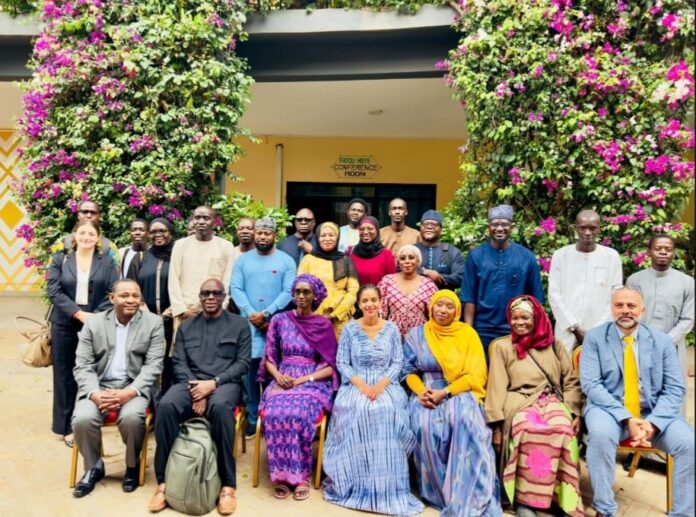By Haddy Gaye
On Friday, 11 July, the Ministry of Justice, in partnership with the Gambia Bar Association, convened a meeting with stakeholders to discuss the ECOWAS Decision and Statute establishing the Special Tribunal, a critical institution within The Gambia’s Special Accountability Mechanism (SAM).
The meeting brought together legal experts, transitional justice practitioners, and representatives from civil society, focusing on ensuring adequate knowledge and understanding of the Statute, as well as the broader legal framework for prosecuting human rights violations and crimes committed between July 1994 and January 2017.
In her opening remarks, the President of the Gambia Bar Association, Neneh MC Cham, stressed the importance of ensuring accountability for crimes highlighted in the findings of the Truth, Reconciliation and Reparations Commission. She reaffirmed the Bar’s dedication to this cause, as well as other ongoing legal reforms aimed at ensuring accountability and justice.
Ida Persson, Special Adviser to the Attorney General and Head of the Post-TRRC Unit, delivered opening remarks on behalf of the Hon. Minister and also, presented on the objectives and structure of the SAM, namely, the Special Prosecutor’s Office responsible for investigations and prosecution, the Special Criminal Division of the High Court tasked with hearing domestic cases and the Special Tribunal, charged with adjudicating international crimes. She noted that the Special Accountability Mechanism Act and the Special Prosecutor’s Office Act were passed by the National Assembly in April 2024, and the Decision and Statute for the Special Tribunal were passed in December 2024 by the ECOWAS Authority of Heads of State.
Whilst the entire SAM legal framework is being operationalized at varying degrees, Persson described the strong political will and commitment to justice by the Government, partners, victims and civil society to see this legislation passed and implementation processes commence. She informed that the Ministry of Justice is in the process of finalizing appointments for key positions, including the Special Prosecutor, and also noted that the Ministry will be considering all options for robust resource mobilization efforts for the SAM.
Mr. Martin Petrov, an international consultant providing expert advisory services to the Hon. Minister of Justice, guided the analysis of and discussions around the Statute. During these deliberations, he stressed the independence of the Tribunal, its regional importance, and international significance. He described the Statute as a foundational instrument that anchors accountability for the atrocities committed during The Gambia’s authoritarian past, but also highlighted the wider implications of this mechanism. Mr. Petrov noted that The Gambia is increasingly viewed as a regional leader in transitional justice and that the international community is closely observing these developments.
Participants commended the consultative nature of the process and raised important questions related in particular to victim participation, witness protection, resource mobilization and international collaboration. There was consensus on the need to uphold transparency, guarantee the Tribunal’s independence, and adhere to a clear timeline for implementation.
The meeting concluded with a collective commitment to support the Ministry of Justice in securing justice for victims and preventing the recurrence of similar future abuses and crimes.
The Special Tribunal is expected to serve a central role in prosecuting those responsible for enforced disappearances, torture, and other grave offenses documented in the TRRC’s final report published in November 2021.




